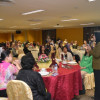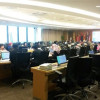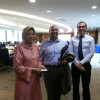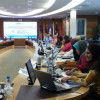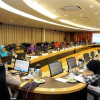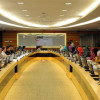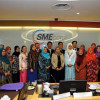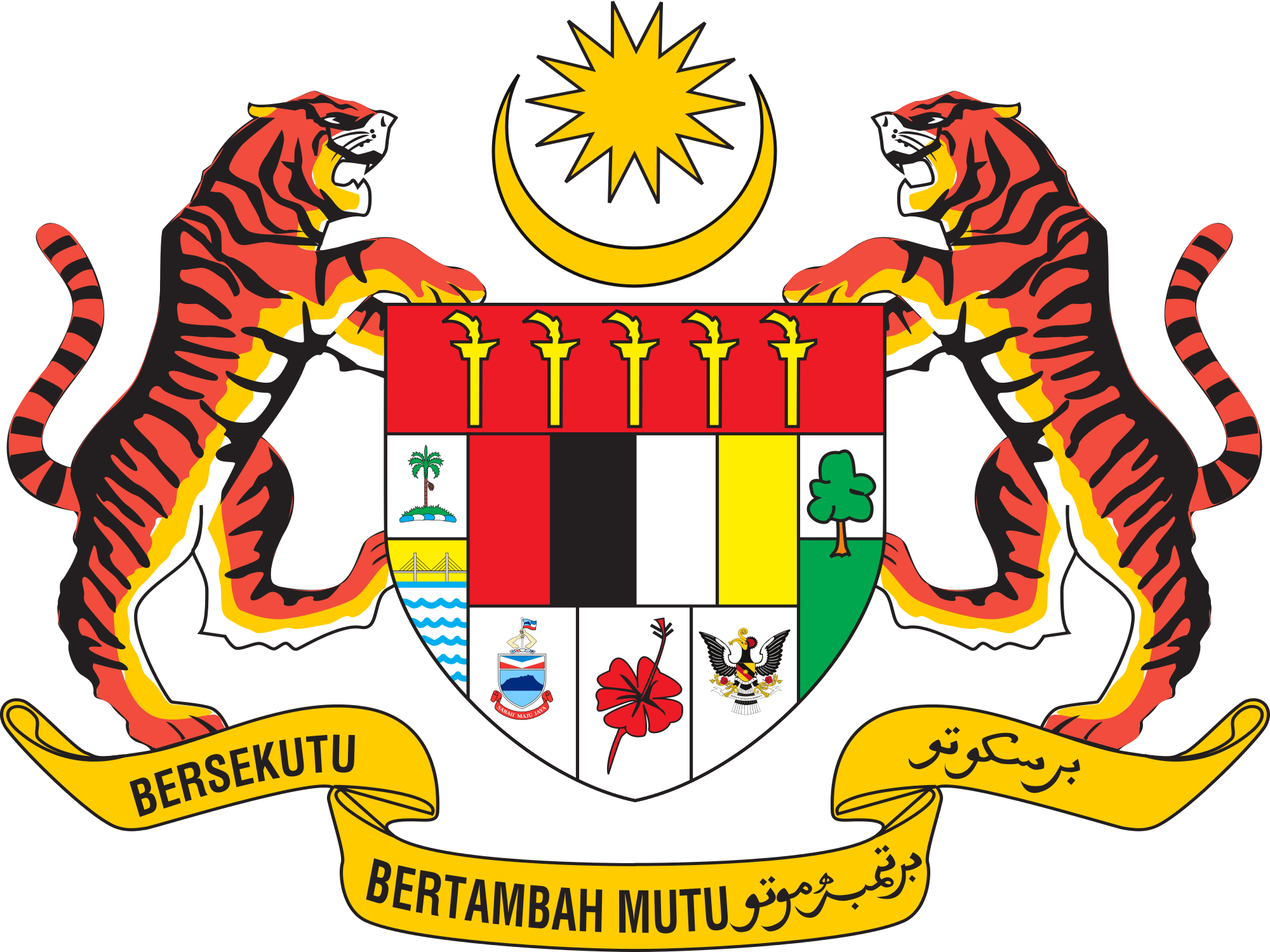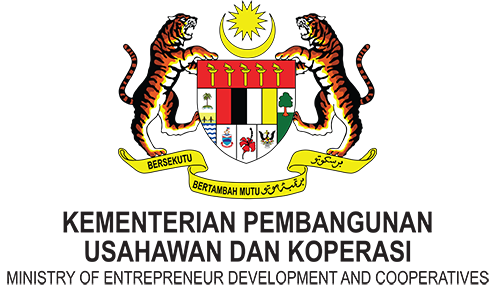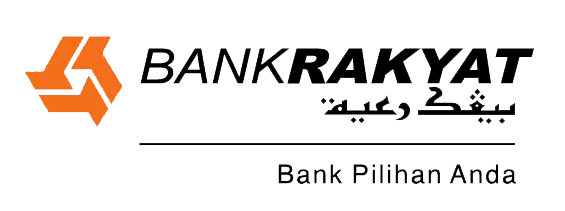Introduction
SME Corp. Malaysia as the Secretariat to the National SME Development Council (NSDC) has been conducting surveys on SMEs since 2009 to gauge the quarterly business performance as well as to seek feedback on current issues facing SMEs in Malaysia. The surveys which were conducted in collaboration with Bank Negara Malaysia (BNM) were well represented in terms of economic sectors, geographical spread (including East Malaysia), establishment size as well as gender.
SME Performance during 2019
- With a total sample size of 1,346 respondents nationwide, the Survey was well represented in terms of economic sectors, geographical spread and size of establishment.
- Majority of the respondents were from services sector (62.3%), followed by manufacturing (31.2%), construction (4.5%) and the remaining 1.9% from agriculture sector. In terms of the business size, bulk of respondents were microenterprises and small-sized firms (83.3%), while medium-sized firms accounted for 16.7%.
- Looking at the region, respondents were equally distributed across states with Selangor and Kuala Lumpur contributed the highest portion at 18.4%. About three-quarter of respondents (75.4%) were men-owned SMEs while women-owned SMEs constituted about 24.6%. In terms of legal set-up, respondents were mostly operated as private limited companies (58.4%) and sole proprietors (31.9%).
- Comparing 1Q 2019 against 4Q 2018, majority respondents highlighted that their businesses recorded higher sales (55.4%) and profit margin (46.0%), particularly SMEs in the agriculture and services sectors, as well as among small-sized firms. Of those who experienced higher sales in 1Q 2019, majority enjoyed up to 5% increase.
- Percentage of respondents citing higher orders and bookings was higher in 1Q 2019 (48.7%) as compared to the one recorded in the previous 3Q 2018 SME Survey (34.0%).
- A total of 43.2% of the respondents have increased their selling price during the quarter. The price increase was more prominent among microenterprises and small-sized SMEs. In terms of exports sales and production, most of the respondents said that the performance was similar as in the previous quarter (4Q 2018).

Economics and Policy Division
SME Corp. Malaysia
8 April 2021
SME Performance during Third Quarter 2018
- The Third Quarter 2018 (3Q 2018) SME Survey which garnered 1,721 respondents was comprehensive in terms of economic sectors, business size and geographical coverage.
- A total of 67.6% of the respondents were from services sector, 23.0% from manufacturing sector, 6.4% from construction and the remaining 3.0% from agriculture sector.
- In 3Q 2018, SMEs experienced higher sales (45%) but to a lesser extent than previous survey (3Q 2017: 49.6%). Majority SMEs experience same performance in term of profits (41%) as well as maintain selling price (47%) of their goods and services.

SME Outlook during 2018
- The gradual improvement is also reflected in the near-term outlook, as about 44% of respondents expected their business to improve, higher than recorded previously, thus indicating that SMEs have become more optimistic.
- Despite the upbeat outlook, there are still some concerns on the increasing competition, high cost of doing business and high labour cost.

SME Performance during Third Quarter 2017
• Covering 1,469 respondents, survey findings indicated that business performance of SMEs sustained in the third quarter 2017 (3Q 2017).
• About 50% of respondents experienced higher sales (3Q’ 16: 43.8%) while about 39% earned higher profits (3Q’16: 33.4%).

SME Outlook during Third Quarter 2017
• The gradual improvement from the past year also reflected in the near-term outlook, as about 40% of respondents were expecting their business to improve, higher than 36.4% recorded in the previous quarter, thus indicating that SMEs have become more optimistic.
• Key factors contributing to the improved business outlook were positive consumer confidence, positive business sentiment and higher consumer spending.
• Despite the upbeat outlook, there are lingering concerns on the rising cost of business and lower demand of goods and services.

SME Performance during First Quarter 2017
• With a sample size of 2,236 SMEs, findings showed that SMEs had better business performance in the first quarter 2017 (1Q 2017).
• Detailed findings revealed that more respondents experienced higher sales and profits in the 1Q 2017 compared to the previous quarter. A close look at the findings showed that about 49% of the respondents experienced higher sales (3Q’16: 44%), while about 41% earned higher profits (3Q’16: 33%).

SME Outlook during First Quarter 2017
• The gradual improvement in business performance was further reflected in a better short-term outlook. About 36% of the respondents were expecting their business to improve, higher than 29.2% recorded previously, thus indicating that SMEs have become more optimistic.
• Among the key factors contributing to the improved business outlook were positive consumer confidence, positive business sentiment and higher consumer spending.
• Despite the upbeat outlook, there are lingering concerns on the rising cost of business and lower demand of goods and services.
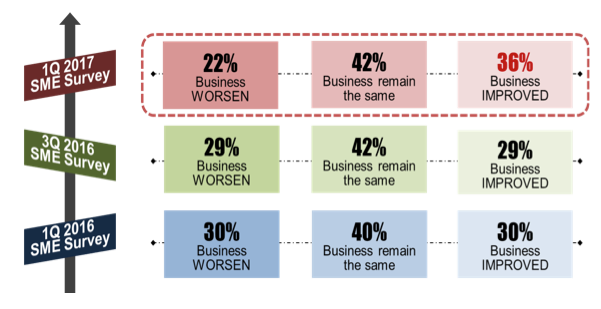
SME Performance during Third Quarter 2016
· Findings showed that business performance of SMEs, in terms of sales and profits, remained relatively stable in the 3Q 2016.
· Detailed findings revealed that about 44% of the respondents experienced higher sales (1Q’16: 42.2%) and one-third recorded higher profits (1Q’16: 32.1%), compared with previous quarter.
· SMEs had continued concerns on the rising business costs as well as falling demand of goods & services.
| Indicators |
Decreased |
Same Performance |
Increased |
|||
| Percentage share of total respondents, % |
||||||
| 3Q 2016 |
1Q 2016 |
3Q 2016 |
1Q 2016 |
3Q 2016 |
1Q 2016 |
|
| Sales Turnover |
27.8 |
32.8 |
28.4 |
25.0 |
43.8 |
42.2 |
| Pre-tax Profit |
26.8 |
28.4 |
39.9 |
39.5 |
33.4 |
32.1 |
| Average Selling Price |
13.8 |
14.4 |
56.6 |
53.0 |
29.6 |
32.6 |
| Exports Sales |
18.8 |
16.3 |
52.7 |
50.7 |
28.5 |
33.0 |
| Production (mfg & agri) |
8.8 |
13.0 |
67.4 |
61.1 |
23.8 |
25.9 |
| Domestic Sales |
26.7 |
30.9 |
33.0 |
29.2 |
40.4 |
39.9 |
SME Outlook during Third Quarter 2016
· On the outlook for the next six month, most respondents are expecting their business to remain stable albeit modest performance. Meanwhile, about 29% are very optimistic on the outlook, particularly microenterprises and those in manufacturing and services sectors.
· The key factors supporting an improved business outlook were positive consumer confidence, positive business sentiment and higher consumer spending.

Source: 3Q 2016 SME Corp. Malaysia Survey
SME Performance during First Quarter 2016
- With a sample size of 2,176 SMEs, findings showed that the business performance of SMEs have gradually improved in the first quarter of 2016. More respondents experienced an increase in sales and profits as compared to the previous findings in the Third Quarter 2015 (3Q 2015) SME Survey.
- About 42.2% of respondents recorded increased sales in 1Q 2016 compared to the previous quarter, which was higher than 37.3% of respondents recorded in the 3Q 2015 SME Survey. Nevertheless, there was also slightly more respondents who indicated a worse performance in the 1Q 2016 survey compared to the previous survey.
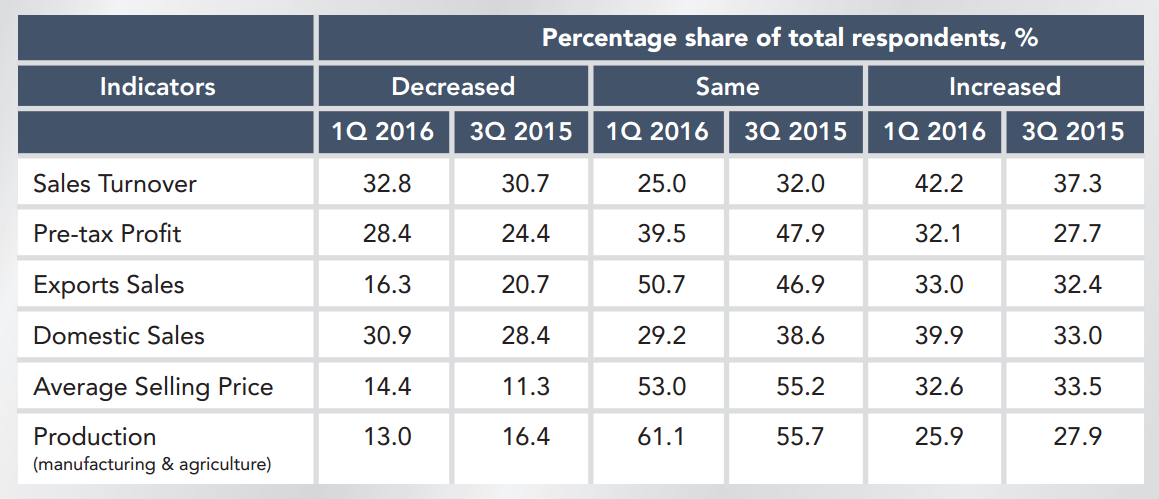
SME Outlook during First Quarter 2016
The gradual improvement in business performance was further reflected in a better near-term outlook. About 30.4% of the respondents were expecting their business to improve compared to 28.3% in the previous quarter survey, while the number of respondents citing a worsening outlook reduced significantly to only 30.2% as compared to 40.5% recorded in the previous survey. The improved outlook was also reflected by the higher orders or bookings received during the quarter (1Q 2016: 27.5% vs 3Q 2015: 21.8%).
SME Performance during Third Quarter 2015
- Covering 2,336 respondents, survey findings indicated that there was a sign of weakening business performance among SMEs. More respondents recorded weaker sales and exports as compared to the previous quarter, particularly among the small and medium-sized firms. For example, 37.3% of the respondents experienced an increase in sales turnover, which was lower than 39% recorded in the 1Q 2015.
-
Indicators Percentage share of total respondents, % Decreased Same Increased 3Q 2015 1Q 2015 3Q 2015 1Q 2015 3Q 2015 1Q 2015 Sales Turnover 30.7 25.6 32.0 35.4 37.3 39.0 Pre-tax Profit 24.4 19.8 47.9 52.9 27.7 27.3 Exports Sales 20.7 13.2 46.9 61.2 32.4 25.6 Domestic Sales 28.4 20.3 38.6 48.2 33.0 31.5 Average Selling Price 11.3 11.6 55.2 59.7 33.5 28.7 Production (manufacturing & agriculture) 16.4 8.6 55.7 65.0 27.9 26.3 - SME Outlook during Third Quarter 2015
- The weak performance and concerns on the current economic conditions were further reflected in a less optimistic short-term outlook, as 40.5% cited worsening outlook for the next six months i.e. outlook for the month of October 2015 till March 2016. This is a significant change in perception compared to only about 13.8% citing a worsening outlook in the previous year (3Q 2014 SME Survey). Respondents who did indicate worsening outlook were particularly from the medium and small-sized firms as well as from the agriculture, construction and services sectors.
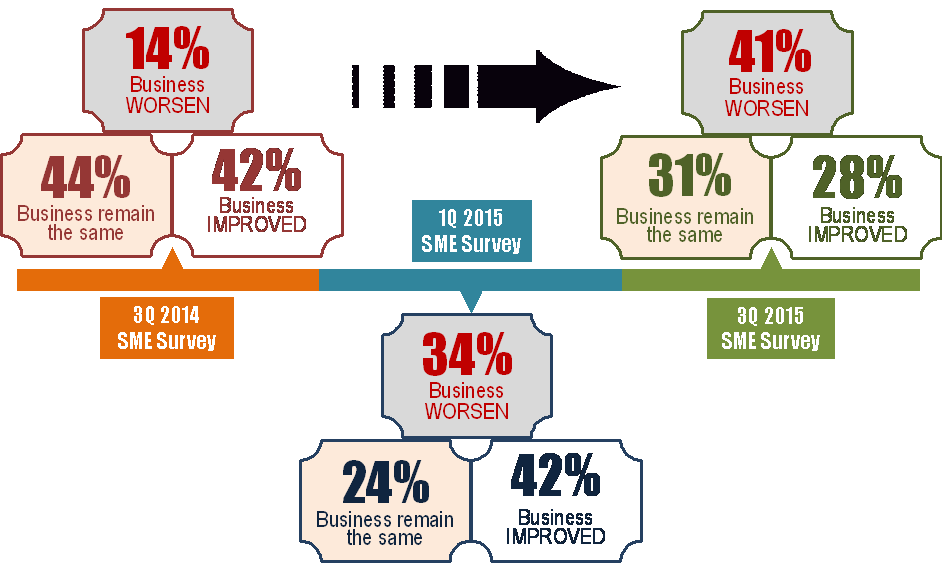
- The weak performance and concerns on the current economic conditions were further reflected in a less optimistic short-term outlook, as 40.5% cited worsening outlook for the next six months i.e. outlook for the month of October 2015 till March 2016. This is a significant change in perception compared to only about 13.8% citing a worsening outlook in the previous year (3Q 2014 SME Survey). Respondents who did indicate worsening outlook were particularly from the medium and small-sized firms as well as from the agriculture, construction and services sectors.
SME Performance during First Quarter 2015
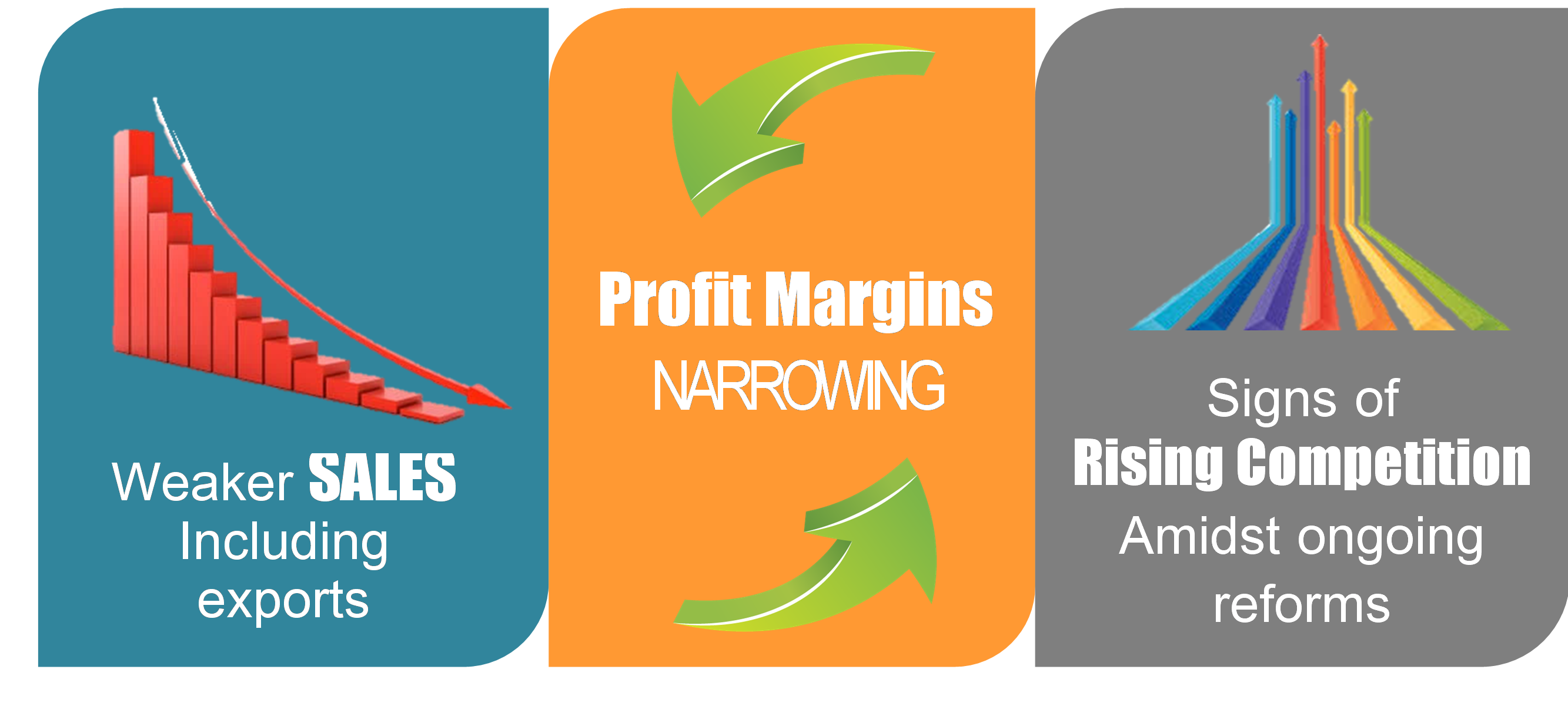

SME Outlook during First Quarter 2015
Short-term Business Outlook
• Respondents were less optimistic on the business outlook for the next 6 months
• About one-third of the respondents were expecting their business prospects to worsen, compared to only 7% about a year ago
• Respondents in the construction, services and agriculture sectors were expecting a worsening outlook and mainly among the medium and small-sized firms

SME Performance during Third Quarter 2014

SME Outlook during Third Quarter 2014
Short-term Business Outlook
• Respondents remained relatively optimistic on the near-term outlook, as 42% of them cited improved business performance in the next 6 months until March 2015, particularly microenterprises and those in manufacturing sector

SME Performance during First Quarter 2014
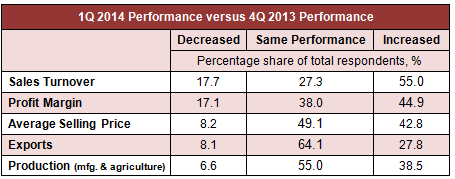
SME Outlook during First Quarter 2014
• Overall, most respondents (51.6%) foresee that their current business conditions will remain the same in the next 6 months, mainly among the small-sized SMEs and those in the agriculture sector.
• However, comparison across sectors shows that respondents in the manufacturing sector were generally optimistic as half of them cited better performance in the near-term.

For further information, kindly contact:
Puan Farah Yasmin Yahya
Email: farah.yasmin@smecorp.gov.my
Tel: 03 – 2775 6057














